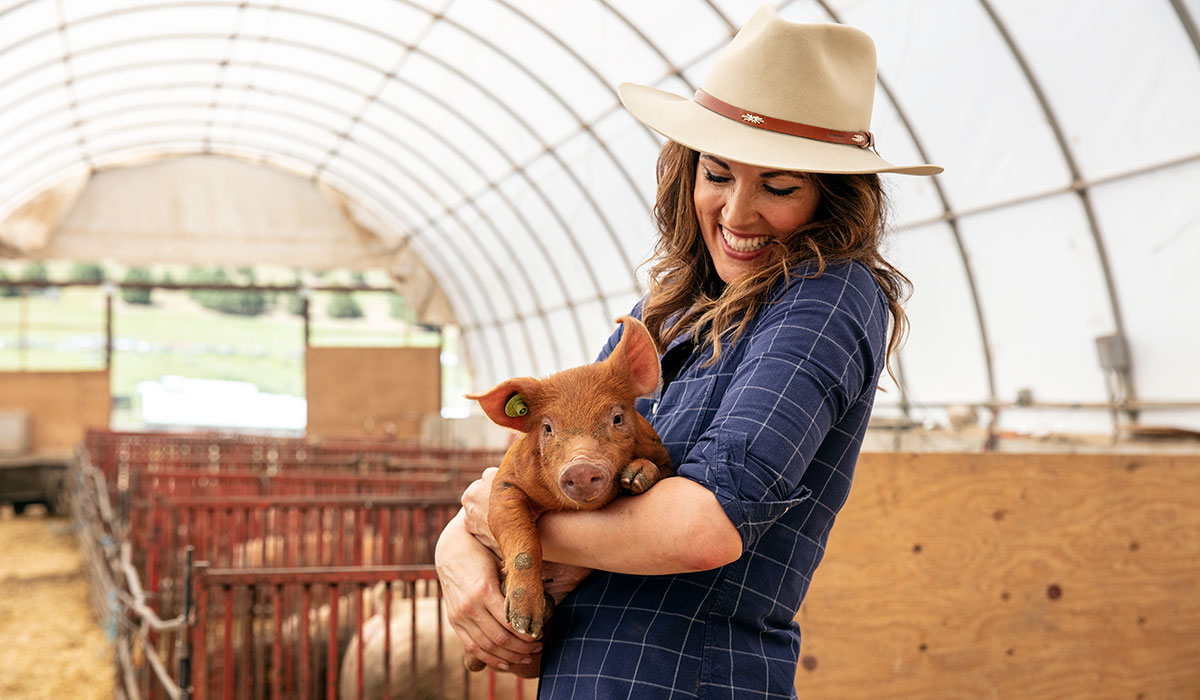Why You May Not Need to Give Up Meat to Eat Sustainably
While we all need to eat, it can be a little shocking to realize the impact the food industry has on carbon emissions; about one quarter of the global greenhouse gas emissions that humans create comes from the food industry, with 14.5 percent due to energy released from livestock. But while those numbers are significant, there are ways to reduce your carbon footprint through your diet – and it doesn't necessarily mean giving up meat.
"Don’t eat asparagus in January and then tell me you’re a vegetarian for environmental reasons," said Anya Fernald, the co-founder and CEO of Belcampo, a company with restaurants in California and Hudson Yards that serves meat from their certified organic farms. Shipping fruits and vegetables around the world has a high carbon impact, too, she points out, noting, "in terms of the environment, where your food comes from is the most important factor."
If you eat at Belcampo, you know exactly where your food is coming from; Belcampo Farms in California is the source of the meat served at the restaurants, allowing Fernald to control every element of the process, from an animal's birth, to its eventual fate on your plate. During their lives, animals are raised using "low-stress animal handling practices" and feed on regenerative grassland, minimizing their impact on the soil and land. When it comes time to process the animals, they are sent to a USDA processing facility designed by animal handling expert Temple Grandin, ensuring they have a fast, low-stress death. And finally, when they serve the animal, Belcampo butchers are trained in whole-animal butchery, meaning no part of the animal goes to waste.
All of this control ensures that the meat Belcampo serves is high quality and has a minimal impact on the environment, but it also means that it isn't cheap – especially when compared to the prices for industrial-grade beef. One of Fernald's goals is making people consider meat a luxury again, and that the health benefits that come from eating good food are worth the price. "Paying attention to where your food comes from is the best investment you can make in your health," she said, "Spend money now on clean food, as opposed to spending money later on your nursing home or your fertility treatments."
According to Fernald, the important questions to ask about your food before you buy it are: what certifications does it have that attest to where it came from (GMO Free and Organic are good ones to look for), what’s the carbon implications of this food, and – in the case of fruits and vegetables – is this food in season right now in the place where you live. She also encourages people to consider eating parts of the animal they wouldn't normally, like chicken liver, which she claims has fertility benefits, and bone broth which has collagen in it and so she says is good for the skin.
"We’ve created a world where everything is abundant, and that’s magical. We’ve got way more calories than we could ever eat," she said, "But now, the game is trying to navigate that landscape. And now the toxicity is because we have too much of everything we ever wanted."
One thing she doesn't recommend eating? Insects, which have been hailed as a potential scaleable and sustainable food source. Never mind the ick factor, insects are inefficient at producing energy, Fernald says. And she believes meat can be a sustainable food source as well – if done correctly.
"If the only meat available is what is produced by the industrial complex, then we should be eating insects," Fernald said, "But there’s another way and it’s regenerative farming."
The Related Life is written and produced by Related Luxury Rentals. Be sure to follow us on Facebook, Twitter and Instagram for the latest events, news and announcements in your area, and tag us for a chance to be featured @therelatedlife and #therelatedlife.
